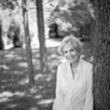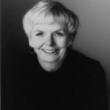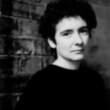Negotiating with the dead: a writer on writing
Description
More Details
Similar Titles From NoveList
Similar Authors From NoveList
Published Reviews
Choice Review
In this gem of a book, the renowned Canadian author writes of writers, writing, and the writer's life. Originally delivered as the prestigious Empson Lectures (Univ. of Cambridge), the essays are crammed with readerly insights and sly humor. That Atwood has read widely and deeply is everywhere evident: her references range from the Bible to Frank Baum, from Isak Dinesen to Jorge Luis Borges, from Shakespeare to Stephen King. In the opening chapter she traces her development as a writer. Subsequent chapters meditate on familiar topics, but always in a fresh and innovative fashion: the double life of a writer, oral and written literature, the conflict between writing for truth and writing for money (and between art for art's sake and art for social responsibility), and the role of the reader in creating meaning. In the closing chapter, Atwood reveals the meaning of her title: "All writing of the narrative kind, and perhaps all writing, is motivated, deep down, by a fear of and fascination with mortality--by a desire to make the risky trip to the Underworld, and to bring something or someone back from the dead." Of particular interest to students and faculty in literature and creative writing courses; strongly recommended for all academic and public libraries. E. R. Baer Gustavus Adolphus College
Library Journal Review
This book grew out of the series of Empsom lectures that prize-winning novelist Atwood gave at the University of Cambridge in 2000. In it, she addresses a number of fundamental questions: not how to write but the basic position of the writer, why a writer writes, "and for whom? And what is this writing anyway?" Wearing her learning lightly, Atwood allows her wit to shine on almost every page. She probes her life and work along with those of many other writers and brings in myths, fairy tales, movies whatever feeds her themes. Following an initial autobiographical chapter, Atwood addresses major issues: the duplicity evidently inherent in writing; the problems of art vs. money; the problems of art vs. social relevance; the nature of the triangular relationship of writer, reader, and book; and, in the final title chapter, the provocative idea that "all writing of the narrative kind, and perhaps all writing, is motivated, deep down, by a fear of and a fascination with mortality by a desire to make the risky trip to the Underworld, and to bring something or someone back from the dead." Atwood is not looking to provide answers or solutions but to explore the parameters of some interesting questions. The result is engaging food for thought for all who care about writers and writing. Recommended for academic and large public libraries. Mary Paumier Jones, Westminster P.L., CO (c) Copyright 2010. Library Journals LLC, a wholly owned subsidiary of Media Source, Inc. No redistribution permitted.
Library Journal Reviews
This book grew out of the series of Empsom lectures that prize-winning novelist Atwood gave at the University of Cambridge in 2000. In it, she addresses a number of fundamental questions: not how to write but the basic position of the writer, why a writer writes, "and for whom? And what is this writing anyway?" Wearing her learning lightly, Atwood allows her wit to shine on almost every page. She probes her life and work along with those of many other writers and brings in myths, fairy tales, movies whatever feeds her themes. Following an initial autobiographical chapter, Atwood addresses major issues: the duplicity evidently inherent in writing; the problems of art vs. money; the problems of art vs. social relevance; the nature of the triangular relationship of writer, reader, and book; and, in the final title chapter, the provocative idea that "all writing of the narrative kind, and perhaps all writing, is motivated, deep down, by a fear of and a fascination with mortality by a desire to make the risky trip to the Underworld, and to bring something or someone back from the dead." Atwood is not looking to provide answers or solutions but to explore the parameters of some interesting questions. The result is engaging food for thought for all who care about writers and writing. Recommended for academic and large public libraries. Mary Paumier Jones, Westminster P.L., CO Copyright 2002 Cahners Business Information.






























